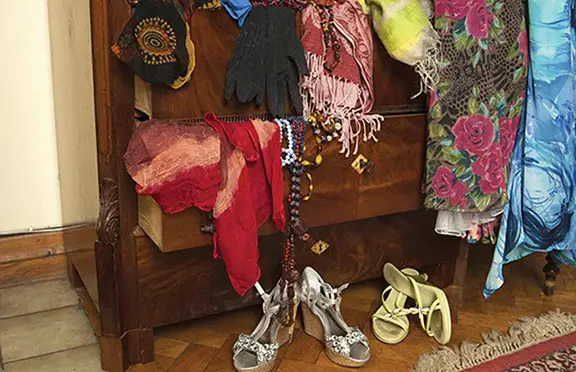
By Harriet Edleson for Next Avenue
If you’re ready to move to a smaller space or think you might want to downsize in the not-too-distant future, take a deep breath and start planning.
It’s a much bigger task than you’ll ever imagine, partly because the process entails far more than just deciding which possessions to keep and which to toss.
Most people acquire things over a lifetime — one decade, year, month, or day at a time. Through the years, possessions, from clothes to decorative arts, can accumulate: Flexible Flyer sleds tucked away in the basement crawl space; bridesmaid’s or flower girl dresses stored in closets; Valentines, birthday cards, and other personal correspondence stashed in night table drawers.
Why we won’t toss
Why have we accumulated so much and refused to toss so little? “People took pleasure in the things they used, cared for, and valued,” said Gary W. Small, director of the UCLA Longevity Center and president of the American Society for Geriatric Psychiatry. Keeping all those things can become, frankly, a burden. “It overtakes your life,” Small noted.
Trying to sort and toss possessions is a deeply psychological task as much as a decluttering one. It means, in a way, dismantling a life that once was and no longer is, at least not in the same way. We hang onto things that remind us of a pleasant time. Sorting through old letters from friends or family members is “pleasure for a moment,” Small said. “It’s a momentary experience.”
When lightening your load, emotions come into play. Some are sweet and others are less so, including the often hidden feelings within us that rise to the surface, reminding us of the past and of the limits of life itself. Seeing items you haven’t thought of or seen in a while can trigger sweet memories of times past or of loved ones no longer alive.
Dealing with mortality and balance
The difficulty of dismissing stuff can be rooted in mortality and the realization that no one lives forever. At a certain point in life, there is more past than future, and that, in itself, can be daunting. “We’re all mortal,” Small said. “The issue is balance. You can’t hold onto all things. One of the upsides to downsizing is that it allows us to live more in the present.”
It’s preferable to start shedding possessions in your 50s or 60s, rather than waiting until you are older when you may be less healthy, strong, and mentally acute, experts say.
“We’re at greater risk for cognitive decline at 85 than at 65,” Small said. Specifically, he noted, at 65, the risk of cognitive decline is 10 percent, while at 85, it’s 50 percent. According to the Alzheimer’s Association, 11 percent of people 65 and older have Alzheimer’s disease, but 32 percent age 85 and older do; 82 percent of people with Alzheimer’s are 75 or older.
Some aren’t sentimental
Some boomers, of course, aren’t sentimental about hanging onto family possessions. “Baby boomers don’t care mostly,” said Deborah Heiser, an applied developmental psychologist based in Great Neck, N.Y., and co-editor of the book, Spiritual Assessment and Intervention with Older Adults: Current Directions and Applications. For many, the attitude is “new home, new me,” Heiser said. “It’s freeing — liberating in a way.”
The best way to complete the task is to do it in a systematic way, maybe over a period of as long as two years, leaving sufficient time to evaluate, sort, send to relatives, give away, sell, or hire a professional to help with any and all of it.
It’s “one closet at a time, one drawer at a time, so as not to be overwhelmed,” Small said.
In the end, people are more comfortable with downsizing when they are in control of how they’ll live the next chapter of their life as opposed to waiting until they’re unable to rid themselves of their possessions. The more control you have over what you’ll keep and what you’ll discard, the greater likelihood you’ll love your new life.
If you would like more information about retirement living at Luther Oaks, or to schedule a tour, please contact Elizabeth Jannusch or Karen Coughlin at 309-557-8000. Luther Oaks is located at 601 Lutz Road, Bloomington, IL, and offers Independent Living, Assisted Living, and Memory Support.
Copyright© 2016 Next Avenue, a division of Twin Cities Public Television, Inc.
Photo credit: Getty Images

